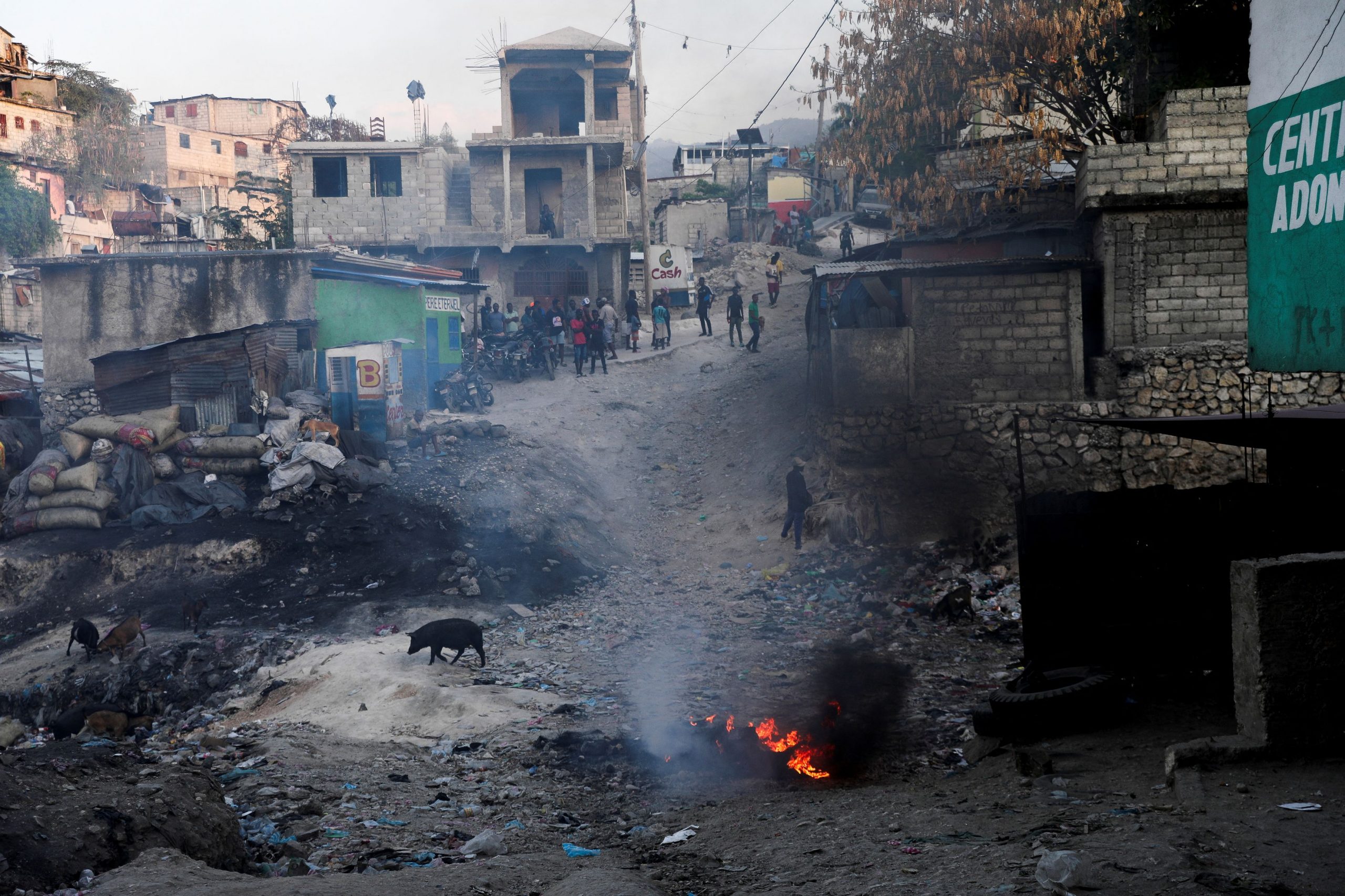The U.S. on Wednesday facilitated the safe departure of American citizens from Haiti’s capital, transporting more than a dozen people by helicopter to the Dominican Republic as civil unrest escalates.
It was one of a series of helicopter flights planned from Port-au-Prince to the Dominican capital, Santo Domingo, where U.S. government personnel can provide consular service, a State Department spokesman said. At least 30 Americans are expected to be airlifted by the government-chartered helicopter flights daily.
On Sunday, the U.S. facilitated the first departure of Americans, flying more than 30 from Cap-Haïtien in Haiti’s north to Miami International Airport.
“We reiterate our message to U.S. citizens: Do not travel to Haiti,” the State Department spokesman said. “U.S. citizens should depart Haiti when transportation options are available, and it is safe to do so.”
The departures come after weeks of gang violence and political tumult in the Caribbean nation. A gang siege left the country’s main airport closed . Warlords have raided jails, freeing nearly 5,000 prisoners. And the country’s unpopular prime minister, Ariel Henry , said he would resign .
Efforts to create a transitional council to succeed Henry and call new elections have been delayed by infighting between political factions, according to a person involved in the talks and a Caribbean diplomat who is tracking the negotiations.
Haitian political leaders are in intense deliberations to appoint the council, made up of seven voting members, which in addition to selecting Henry’s replacement would welcome a Kenya-led security force to combat gangs and eventually organize presidential elections.
As of early Wednesday, negotiators had agreed on six of the seven panel members but remained at odds over the last post, which was left vacant after one party withdrew in protest, people familiar with the matter said. They added that negotiators are considering whether to appoint a religious leader or a judge to the post.
“What the council is missing is a moral voice who can call for an end to the violence and madness,” said one of the people. “It’s hard to be optimistic.”
While Haiti’s political forces struggle to reach consensus, violence has ratcheted up in the capital. The United Nations has said that 80% of Port-au-Prince is controlled by gangs that are largely opposed to Henry and deployment of an overseas security force.
The gangs have gone after a range of targets. Security forces thwarted attacks on the central bank and the airport. On Saturday, Unicef said one of its 17 shipping containers holding emergency maternal and child-care supplies was looted by gangs, which control Haiti’s main port.
Gangs also launched attacks on city sectors that had been considered relatively safe, such as the upscale Petionville district, where homes have been raided and shops looted.
After an attack on Monday, the bodies of 24 victims could be seen in the streets. Gangs broke into homes and cars, and ransacked a hospital in Port-au-Prince. In one video shared on social media, a resident filmed the looted hospital. “Look at this…all destroyed,” he said.
The attack on Petionville surprised many Haitians because in recent years it was the one place in the capital where there was a sense of security.
“We’re surrounded from all fronts” said Dominique, a Haitian businesswoman who asked that her last name be withheld for fear of reprisals. “For a long time, we were used to these malaises,” she said, referring to social unrest. “Now, there’s a generalized sense of fear because we don’t know.”
U.S. citizens wanting to leave Haiti are being asked to reach out to the Department of State using a crisis intake form .
Write to Vivian Salama at vivian.salama@wsj.com and Kejal Vyas at kejal.vyas@wsj.com



